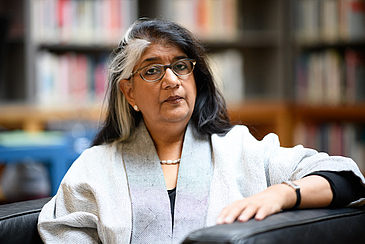The “question of Europe” has so far mostly been debated as an “internal affair” that concerns the relations between European states and societies, or the workings of supranational EU-institutions. Such a narrow perspective disregards the (post)colonial relations and global entanglements that have contributed so substantially to the making of Europe in its present form. But many of the recent crises of the European project can arguably be understood at least partly as resulting from this denial.
We will discuss the many past and present entanglements that place Europe in a global context. What kind of alternative frameworks could transcend the conventional Eurocentrism of social sciences and humanities? Could the making of Europe and “Europeanization” be seen as part of open-ended, polyphonic and often contradictory processes? Would it be possible to ask a different set of questions on migration, racism, authoritarian populism or the impact of COVID-19, if we were to understand Europe explicitly as a “global question”?
Shalini Randeria, Rector of the Institute for Human Sciences, Vienna; Professor of Social Anthropology and Sociology at the Graduate Institute of International and Development Studies, Geneva and U Bremen Excellence Chair & Worlds of Contradictions Research Group “Soft Authoritarianisms”. Co-editor of “Jenseits des Eurozentrismus. Postkoloniale Perspektiven in den Geschichts- und Kulturwissenschaften”. Frankfurt: Campus 2013 (second expanded edition).
Jens Adam, Cultural/Social Anthropologist; Senior Researcher at the U Bremen Excellence Chair & Worlds of Contradictions Research Group “Soft Authoritarianisms”. Co-editor of “Europa dezentrieren. Globale Verflechtungen neu denken”. Frankfurt: Campus 2019.
The video conference will be held in English.
Registration is possible until 16.11. Please send an e-mail to: diversity-at-ubprotect me ?!uni-bremenprotect me ?!.de
Further information on the series "Diversity @ Uni Bremen: International prospects & challenges" here

